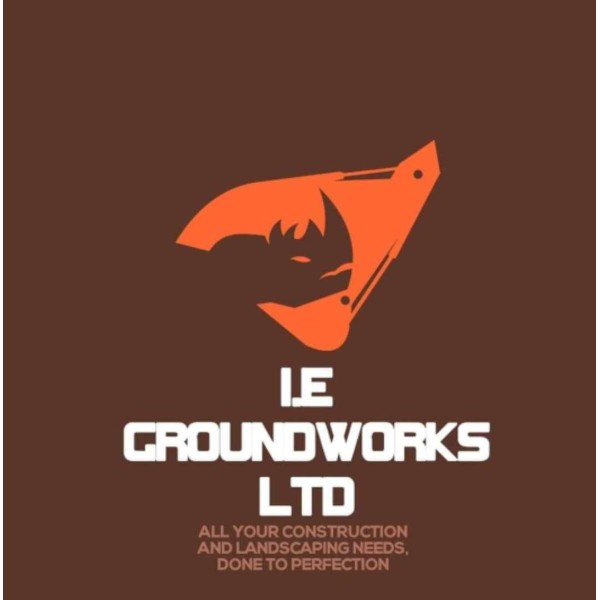Garden Fencing in Hove
Search Garden Fencing in places nearby
Introduction to Garden Fencing in Hove
Garden fencing in Hove is more than just a boundary marker; it's a statement of style, security, and sustainability. Nestled along the picturesque coast of East Sussex, Hove is a town that boasts beautiful gardens and outdoor spaces. Whether you're a seasoned gardener or a newcomer to the area, understanding the nuances of garden fencing can enhance both the aesthetic and functional aspects of your outdoor space.
The Importance of Garden Fencing
Garden fencing serves multiple purposes. It provides privacy, defines property lines, and adds an element of security. In Hove, where gardens are often a focal point of home design, fencing also plays a crucial role in enhancing the visual appeal of your property. A well-chosen fence can complement the architectural style of your home and create a cohesive look.
Choosing the Right Material for Your Fence
When it comes to selecting materials for garden fencing in Hove, there are several options to consider. Each material offers unique benefits and challenges, so it's essential to choose one that aligns with your needs and preferences.
Wooden Fences
Wooden fences are a popular choice due to their natural appearance and versatility. They can be painted or stained to match any garden theme. However, they require regular maintenance to prevent rot and weather damage.
Metal Fences
Metal fences, such as wrought iron or aluminium, offer durability and a classic look. They are low-maintenance and can withstand harsh weather conditions, making them ideal for coastal areas like Hove.
Vinyl Fences
Vinyl fencing is known for its durability and low maintenance. It doesn't rot, warp, or fade, making it a long-lasting option. However, it may not offer the same aesthetic appeal as natural materials.
Composite Fences
Composite fencing combines wood fibres and plastic, offering the appearance of wood with the durability of synthetic materials. It's an eco-friendly option that requires minimal upkeep.
Design Considerations for Garden Fencing
Designing your garden fence involves more than just picking a material. Consider the height, style, and colour to ensure it complements your garden and home.
Height and Privacy
The height of your fence will depend on your privacy needs. Taller fences provide more privacy but may require planning permission. Check local regulations before installation.
Style and Aesthetics
From picket fences to modern slatted designs, the style of your fence should reflect your personal taste and the overall design of your garden. Consider how the fence will look from both inside and outside your property.
Colour and Finish
The colour of your fence can significantly impact the look of your garden. Natural wood tones offer a classic look, while painted fences can add a pop of colour. Ensure the finish is weather-resistant to maintain its appearance over time.
Installation and Maintenance Tips
Proper installation and maintenance are crucial for the longevity of your garden fence. Here are some tips to ensure your fence stands the test of time.
Professional Installation
While DIY installation is possible, hiring a professional ensures the fence is installed correctly and safely. Professionals can also advise on the best materials and designs for your specific needs.
Regular Maintenance
Regular maintenance, such as cleaning, painting, or staining, will keep your fence looking its best. Inspect your fence regularly for signs of damage or wear and address any issues promptly.
Environmental Considerations
In Hove, where environmental consciousness is a priority, choosing sustainable fencing options is essential. Opt for materials that are eco-friendly and sourced responsibly.
Recycled Materials
Consider fences made from recycled materials, such as composite or metal, to reduce your environmental impact. These materials often require less maintenance and have a longer lifespan.
Local Sourcing
Locally sourced materials reduce transportation emissions and support the local economy. Look for suppliers in the Hove area to find sustainable options.
Cost Considerations
The cost of garden fencing in Hove can vary widely depending on the material, design, and installation method. It's important to budget accordingly and consider both initial costs and long-term maintenance expenses.
Budgeting for Your Fence
Start by determining your budget and prioritising your needs. Consider the cost of materials, installation, and any additional features, such as gates or decorative elements.
Long-term Savings
Investing in high-quality materials may have a higher upfront cost but can save money in the long run through reduced maintenance and replacement expenses.
Legal and Regulatory Aspects
Before installing a garden fence in Hove, it's important to understand the legal and regulatory requirements. This ensures compliance and prevents potential disputes with neighbours.
Planning Permission
Check with the local council to determine if planning permission is required for your fence. This is especially important for taller fences or those near public roads.
Boundary Agreements
Discuss your plans with neighbours to avoid boundary disputes. It's important to agree on the exact location of the fence and any shared responsibilities for maintenance.
Enhancing Security with Garden Fencing
Garden fencing can significantly enhance the security of your property. Consider additional features to maximise protection.
Security Features
Incorporate security features such as lockable gates, anti-climb designs, and motion sensor lighting to deter intruders and protect your home.
Visibility and Surveillance
Ensure your fence doesn't obstruct visibility from the street, as this can provide cover for potential intruders. Consider integrating surveillance cameras for added security.
Incorporating Wildlife-Friendly Features
Garden fencing can be designed to accommodate local wildlife, promoting biodiversity and creating a harmonious environment.
Wildlife Corridors
Include gaps or tunnels at the base of your fence to allow small animals to pass through. This helps maintain local wildlife populations and encourages ecological balance.
Plant-Friendly Designs
Choose fence designs that allow climbing plants to grow, providing habitat and food for insects and birds. This enhances the natural beauty of your garden while supporting wildlife.
Frequently Asked Questions
- What is the best material for garden fencing in Hove? The best material depends on your specific needs, such as durability, maintenance, and aesthetic preferences. Wood, metal, vinyl, and composite are all popular options.
- Do I need planning permission for a garden fence in Hove? It depends on the height and location of the fence. Check with the local council for specific regulations.
- How can I make my garden fence more secure? Consider adding lockable gates, anti-climb designs, and motion sensor lighting to enhance security.
- How often should I maintain my garden fence? Regular maintenance, such as cleaning and painting, should be done annually or as needed to prevent damage.
- Can I install a garden fence myself? While DIY installation is possible, hiring a professional ensures proper installation and compliance with local regulations.
- How can I make my fence wildlife-friendly? Incorporate features like wildlife corridors and plant-friendly designs to support local biodiversity.
Garden fencing in Hove is a multifaceted aspect of home and garden design. By considering factors such as material, design, and environmental impact, you can create a fence that not only enhances your property's appearance but also contributes to its security and sustainability. Whether you're looking to add privacy, define boundaries, or support local wildlife, the right garden fence can make all the difference.








